Asking how much do betta fish cost to buy, or how much they cost to care for, is one of those “how long is a piece of string” questions.
Where you live, the variation of betta fish you are looking at, and the size of the aquarium you will be using, along with the aquascaping decor you choose; can all have an impact on the initial outlay, and upkeep costs for your little friend. Within this article, we will be covering the elements of fish care that you may or may not be aware of. For a full list of equipment costs, please have a read of our Cost of Setting Up article.
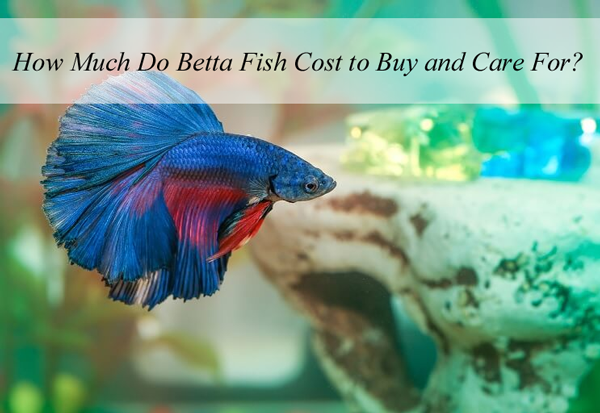
Budgeting For a New Aquarium
Setting up a new aquarium from scratch can be the most expensive part of budgeting for a new betta fish. You can skirt around these costs by purchasing a complete aquarium package. Or you could go all out and invest heavily in a customized tank and display stand, with a complete CO2 setup for a living aquascape design. The sky’s the limit.
Buying A Tank
As we mentioned above, there are complete ready to go packages available that can help to lower the initial costs of setting up a new aquarium. They can be rather limiting as to the type of lighting and filtration that you can use, but all in all, they can be a good start for someone that’s new to the aquarium hobby.
Ideally, you will want a tank that will provide enough room for your betta to swim around in. In the wild, bettas live in the shallow waters of rice fields and other shallow bodies of water. This means that you will not need to buy a deep tank. As long as there’s at least 2.5 Gallons or more of swimming space after the decor has been added, your betta can be just as happy to live in a 6″ deep aquarium as they would a 12″ deep one.
Decor and Aquascape
How you choose to decorate an aquarium, is a matter of taste and budget. By creatively taking minimalist design concepts, or by drawing inspiration from nature itself, you can achieve some stunning and breathtaking layouts. Aside from being visually appealing, the type of layout you choose can also have an impact on the general health of your betta fish. Having live plants, places to hide and rest, and things to explore and play with, can all help to improve the quality of life that your betta is living. Keeping your betta fish happy, more active and comfortable, goes a long way to keeping them healthy; which in turns lowers the risk of illnesses and diseases occurring.
The design you choice to use for your aquascape could include plants, different shapes and formations, substrates, hardscapes like rocks and driftwood, plastic/resin decor, or even material appropriate toys and ornaments from around your home. Just be sure to read up on topics relating to designing an aquascape, the types of materials that can be used, and how to prepare and install driftwood or other hardscapes.
Budgeting For an Established Aquarium
When you have yourself an established aquarium that’s already setup and running, the main expense that you would have from here on out, would be centered around the betta itself.
Buying a Betta Fish
Personally, we would recommend buying your betta from a reputable breeder. We say this because some pet store sold bettas are kept in poor conditions, and can be prone to diseases and other illnesses.With that said, how a betta fish looks, has a huge impact on how much it could cost. Things like size, coloration and pattern, or fin variation, can all effect how much a particular betta may sell for.
Veil Tails for example, are the most common variety of betta in the western world. They are so common in fact that they have flooded the market place, driving down their price, and leading to actual debates among betta fish enthusiasts as to whether or not Veil Tail breeders should be allowed to continue breeding them for commercial sale.
This surplus of Veil Tails is what has made them less desirable for many betta fish enthusiasts. Which in turn, has lowered their value to the point where they are now the cheapest variety of betta available to date.
The more ornate that a betta’s fins are, the more desirable they tend to be. Their specific coloration can also have an effect on their desirability, which in turn all adds together and determines just how much people are willing to pay for them. Some betta fish have even been known to sell for hundreds of dollars, while Plakats can sell for as low as $2.00 each.
Pick the type of betta that best suits both your budget, and your current aquarium setup. This includes the type of decor you are using, as well as any other fish species that the betta may be sharing the aquarium with.
- Depending on the type and coloration combination, Bettas can price from $2.00 – $100.00(+)
General Variation Price Guide
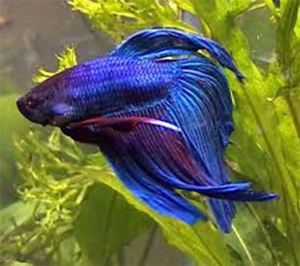
Veil Tail Betta
$2.00 – $5.00 USD
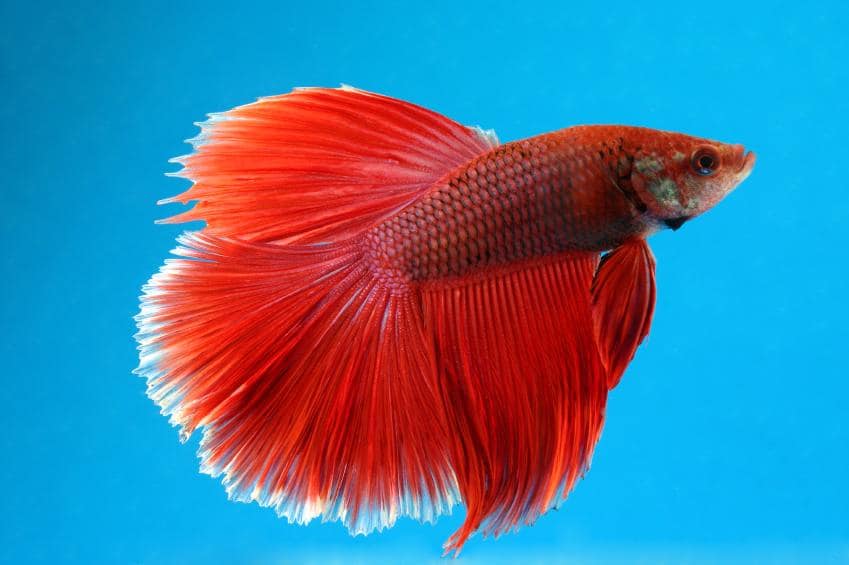
Crown Tail Betta
$3.00 – $6.00 USD
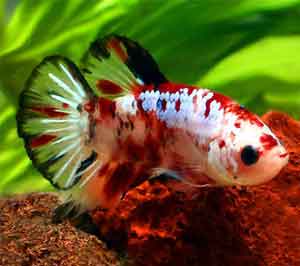
Plakat/Short Tail
$5.00 – $7.00 USD
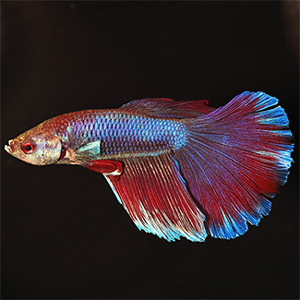
Deltatail Betta
$6.00 – $8.00 USD
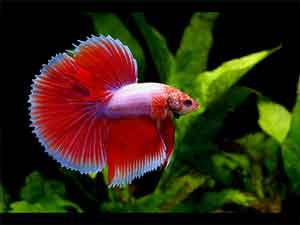
Halfmoon Betta
$10.00 – $13.00 USD
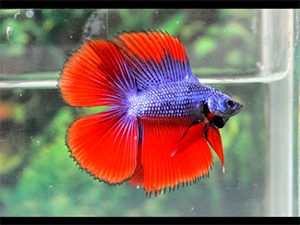
Double Tail Betta
$6.00 – $16.00 USD
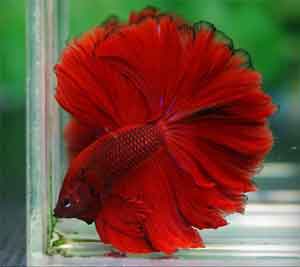
Rose/Feather Tail Betta
$14.00 – $20.00 USD
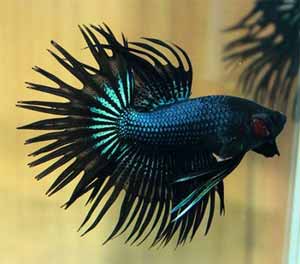
Crown Tail Betta
$10.00 – $20.00 USD
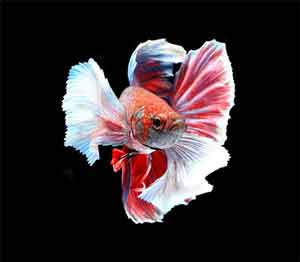
Dumbo/Elephant Ear Betta
$10.00 – $30.00 USD
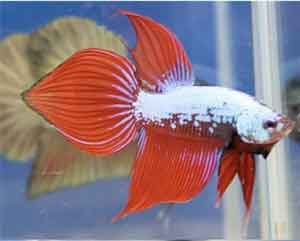
Spade Tail Betta
$13.00 – $22.00 USD
Feeding Your Betta
If your betta will be sharing the aquarium with other fish, it is more cost effective to have fish that can enjoy the same food as your new betta.
To avoid wasting food, and in turn money, you’d only want to buy enough food that can be eaten by your fish before it expires/spoils and needs to be thrown out. With that said, if they can finish off the container of food before it would expire, then you can save money by buying a larger sized portion.
What you feed your betta is very important. Although it may be cheaper to only feed your betta a diet of pellets, it can be a poor dietary option for your betta. A pellet only diet has the risk of causing bloating and constipation issues.
Ideally you will need to supplement your betta’s diet with live food. Feeding your betta a live food only diet can be more expensive than pellets. For this reason, we would advise feeding them a balanced diet of pellets and live, or frozen fresh foods.
In doing so, not only can it help to improve their overall health, but live food can also encourage your betta to be more active as it has to hunt down its next meal. Eating a balanced diet also has the added benefit of helping to make your betta feel more comfortable and happy to be living in their aquarium.
- The price of pellets can be effected by both brand and volume:
- Frozen food can be cheaper by the oz when purchased in bulk. Be sure to check with your local suppliers for deals.
Medication
As a fact of life, there may come a time when your little betta fish may get ill, or catch a disease. This can be avoided by keeping your aquarium clean, and maintaining good quality water conditions. Like us, maintaining a health well balanced diet will also help your betta to fight of any illness that it may contact.
There are many different illnesses and diseases that could effect your betta. If your betta does happen to fall ill, please have a read of our Disease and Treatment Guide to find out how to best treat your betta’s ailment.
Some treatments can be made yourself, others may need to be purchased. For example, Ich can be treated by raising the water temperature. Ideally you would move your fish to a quarantine tank, and increase the temperature by 2 degrees every 12 hours, until it reaches 86°F (30°C) – 88°F (31°C), where the water will be kept at this range for at least 2 weeks. With the display/main tank’s water being raised to 96°F(35°C)+ for at least 48 hours.
- Alternatively, you may need to use an Ich Treatment that can be purchased online, or at your local aquarium or pet store.
- Jungle Brand Ich Treatment, ($3.74)
- A quarantine tank, can be any spare fish tank that’s big enough to support the amount of fish you have.
Final Thoughts
Be sure to pick a betta fish and aquarium setup that’s within your budget and skill set to maintain. You don’t need to spend a fortune to keep your little betta happy and healthy. Like wise, over crowding your aquarium with expensive decor may look nice to you, but if your betta can’t move around freely or have enough space to swim around and exercise in, it could end up making your betta unhealthy and prone to illness
This has helped me so much! I know just what to do incase my fish ever does get sick or hurt. Thank you so much!